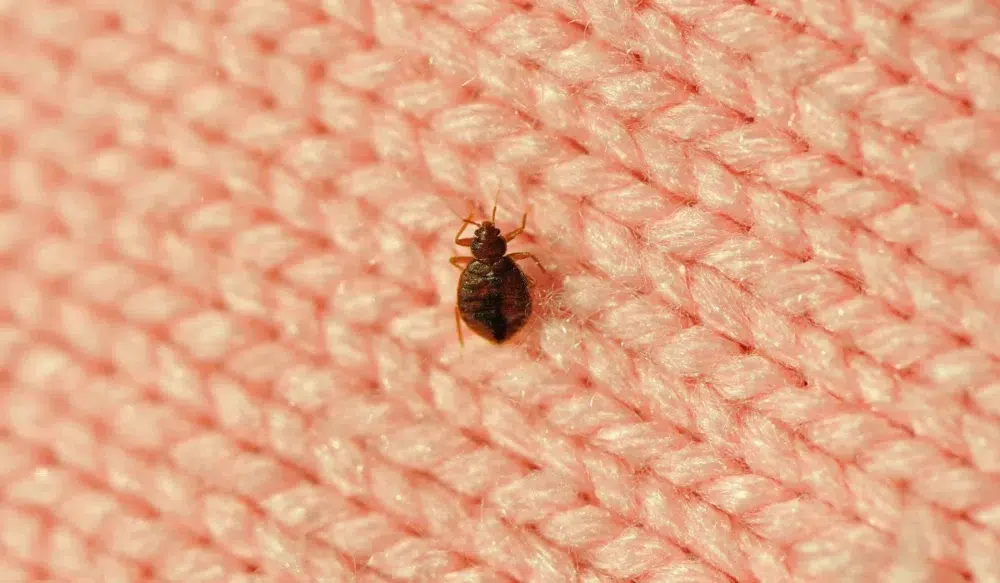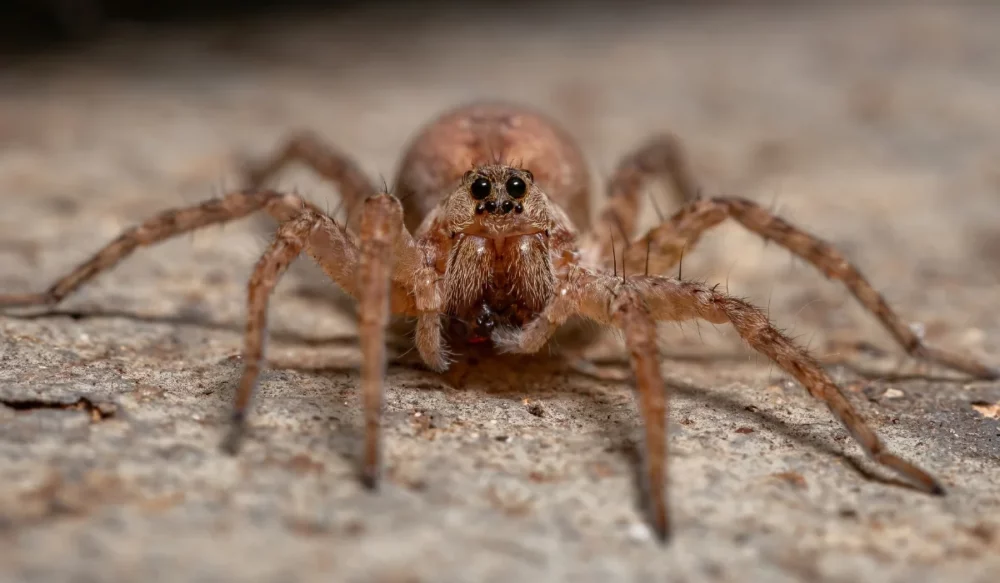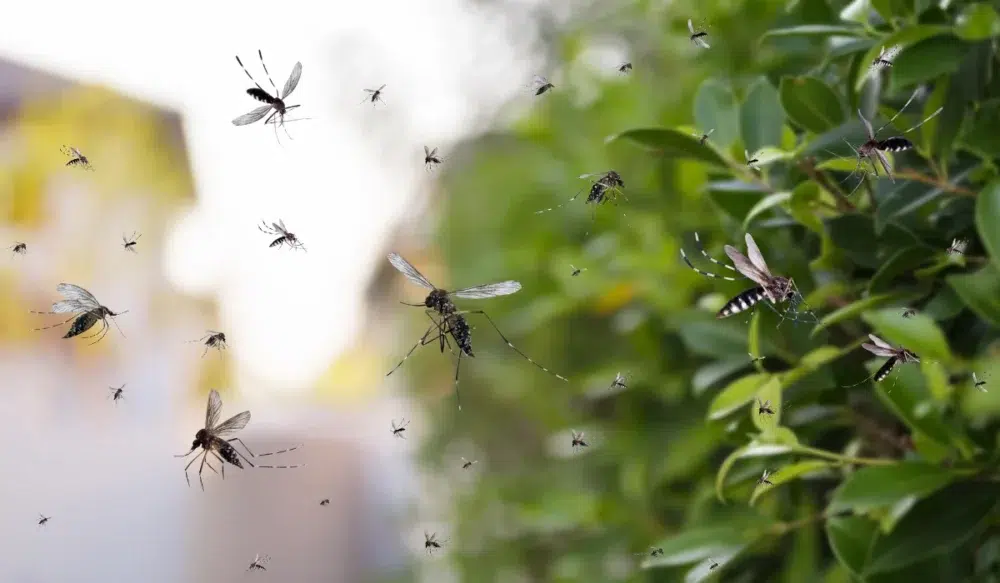Each fall, roof rats become a bigger problem for homeowners in Phoenix, Tucson, and nearby areas. They thrive in warm weather and get more active when temperatures start to cool.
They climb utility lines, trees, and rooflines to sneak into Arizona homes in search of food and shelter.
Homes with citrus trees or outdoor pet food attract them. Learn their habits to prevent roof rat infestations and protect your home from costly damage.
Key Takeaways
- Roof rats in Arizona become more active each fall as outside food sources dwindle.
- Common signs: droppings, gnaw marks, and scratching or scurrying at night.
- Entry points often include rooflines, eaves, attic vents, and utility lines.
- Professional pest control offers the fastest, most reliable way to remove roof rats.
What Makes Roof Rats a Problem in Arizona?
Roof rats, also called black rats or Rattus rattus, are not native to Arizona. They were first found in Maricopa County in the early 2000s and spread quickly. Unlike pack rats that stay near the desert, roof rats adapt well to cities and suburbs. They eat many things, from fallen fruit to birdseed.
Around homes, they chew wires, damage stucco, and contaminate food. In Phoenix and Tucson, a small rat problem can quickly escalate if you ignore the early signs.
Why Roof Rats Invade Homes in the Fall
Fall brings cooler weather and fewer natural food sources, which drives roof rats indoors. They love citrus. Yards with citrus trees often see more rat activity. When fruit drops and begins to rot, it becomes an easy meal for pests.
As strong climbers, roof rats reach eaves and attics by using tree branches and utility lines. Once inside, they build nests and leave rat droppings that can spread germs. According to the University of Arizona, removing food sources, such as fallen fruit, is one of the most effective methods for controlling roof rats.
Common Signs of Roof Rat Infestation
Identifying a roof rat infestation early can save you from significant damage. To avoid costly damage. Look for these signs:
- Dark, spindle-shaped droppings near food storage, woodpiles, or outdoor faucets.
- Gnaw marks on baseboards, wires, or stored items.
- Scurrying sounds in the attic or walls at night.
- Grease marks along rooflines, stucco, or entry points.
You may also see chewed pet food bags, damaged birdseed containers, or insulation pulled for nests. If you notice these, you likely have an active infestation.
How Roof Rats Access Homes
Roof rats find many ways inside, often using overhanging tree branches or power lines to reach attic vents. In Arizona homes, unsealed eaves, gaps at rooflines, and openings near utility lines are easy access points.
Once inside, they chew on electrical wires, raising the fire risk. They also chew cardboard, drywall, and insulation to build nests. Homeowners in Phoenix and Tucson should regularly check for gaps and seal them with steel wool or other durable materials to block entry.
Dangers of a Roof Rat Problem
Roof rats bring health and property risks. Their droppings and urine contaminate food and surfaces. Constant gnawing can damage wires and cause fires.
Roof rats disturb areas around woodpiles and attics, which can alter local pest activity and invite additional problems. Chewed irrigation lines or outdoor faucets can leak and draw in more pests. Without pest control, a small roof rat problem can escalate into significant structural and health issues.
How to Get Rid of Roof Rats
If you already have a roof rat infestation, professional pest management is the most effective solution. Snap traps with peanut butter can catch a few rats, but most infestations need a complete rodent control plan.
In some cases, rodenticides may be necessary, but they should be used with caution to minimize risks to pets and children.
Green Home Pest Control uses safe, targeted methods to protect your family and control rat activity. With exclusion and ongoing monitoring, our professionals help make sure roof rats do not return.
Preventing Roof Rat Infestations in Arizona
Prevention is the best long-term strategy in Arizona. Try these proven steps:
- Trim tree branches so they do not hang over your roof.
- Pick up fallen fruit and secure citrus fruit harvests quickly.
- Store pet food and birdseed in sealed containers.
- Remove wood piles and clutter that give pests shelter.
- Seal gaps with steel wool and check rooflines often for openings and leaks.
Working with a local pest control company in Phoenix or Tucson helps make these steps thorough and effective. Vector control efforts in Maricopa County also emphasize the importance of community-wide action, since roof rats can move from house to house.
Making the Right Pest Control Choice for Arizona Homeowners
Roof rats are a persistent presence in Arizona, but the proper prevention and pest control measures can effectively keep them out. Remove food, seal entry points, and work with a pro for rodent control to protect your family and property from costly damage.
Green Home Pest Control offers expert rat control services across Phoenix, Scottsdale, Chandler, and Tucson.
Contact us now if you suspect signs of roof rat activity; don’t wait. The sooner you act, the easier it will be to eliminate roof rats and keep your home protected throughout the year.
FAQs
Why are roof rats so common in Phoenix and Tucson?
Arizona has mild winters and lots of food, especially citrus. Cities like Phoenix and Tucson also offer shelter and water, which is why roof rats thrive here.
What do roof rat droppings look like?
Rat droppings are small, dark, and spindle-shaped, about half an inch long. Finding them near food, storage areas, or gaps is a common sign of roof rat activity.
Can I get rid of roof rats without professional help?
DIY snap traps may lower activity, but they rarely clear an infestation. Roof rats breed fast and often dodge traps. Professional rodent control handles the problem safely and completely.




